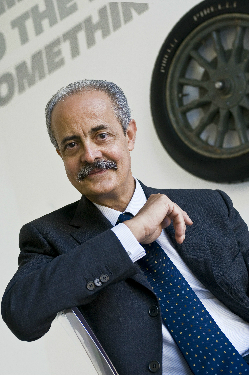Be “foolish” and innovative in ethics and sound enterprise
It was Steve Jobs who, in a speech to graduating university students, recommended that we be “foolish” (as well as “hungry”) in building our future, as innovators and as entrepreneurs. Italian Prime Minister, Enrico Letta, also spoke of follia visionaria (visionary folly) to describe the attitude that his challenged, controversial government would need in facing the dramatic Italian crisis – a dreadful tangle of politics and economics. Folly. The other, non-conformist side of the truth. The ability to see things differently, to surprise, to be eccentric and radically original. All skills that are perfectly suited to the entrepreneur, whose key to action is “innovation”. Culture of enterprise as an intelligent, audacious cultivation of a good sort of folly? Food for thought. As is the radical criticism of an ideology that has been leaving its mark on the world since the 1980s, that of extreme individualism. Giovanni Gozzini, in his book La mutazione individualista – Gli italiani e la television 1954-2011 (The individualist mutation – Italians and television 1954-2011), tells of the downslide of a nation in which (the already fragile) social responsibility and spirit of community have been cut into by a focus on the individual and on small groups that is without any social ethics and is moved by certain communicative processes. Aldo Bonomi, in his insightful Sunday segment in Il Sole24Ore, “Microcosmi”, recalls Tom Wolfe’s critical definition of the “Me Decade” and suggests that, in order for the Italian economy to recover, we need to reassess the capacity for small and medium enterprise to work together, to organize into districts and value chains, to create original synergies between human capital, individual enterprise, and the social capital of networks both old and new. Sounds good. A path to follow while reflecting on that wise, foolish (if that’s not an oxymoron) entrepreneur. And examples? There is that of Brunello Cucinelli, owner of one of the most innovative and prestigious textile and clothing firms, who spoke to Il Sole24Ore (5 May 2013, Sunday edition) about his passion for Marco Aurelio, an emperor and a philosopher, and for St. Benedict, who once told an abbot, “Be rigorous and kind. Be a loving father, but also a demanding teacher.” And what’s the rule for being a good entrepreneur? According to Cucinelli, “Respect for others and the moralisation of public life. But also the need to unite rationalism with an increasingly massive dose of passion and inventiveness.” In other words, stay foolish.


It was Steve Jobs who, in a speech to graduating university students, recommended that we be “foolish” (as well as “hungry”) in building our future, as innovators and as entrepreneurs. Italian Prime Minister, Enrico Letta, also spoke of follia visionaria (visionary folly) to describe the attitude that his challenged, controversial government would need in facing the dramatic Italian crisis – a dreadful tangle of politics and economics. Folly. The other, non-conformist side of the truth. The ability to see things differently, to surprise, to be eccentric and radically original. All skills that are perfectly suited to the entrepreneur, whose key to action is “innovation”. Culture of enterprise as an intelligent, audacious cultivation of a good sort of folly? Food for thought. As is the radical criticism of an ideology that has been leaving its mark on the world since the 1980s, that of extreme individualism. Giovanni Gozzini, in his book La mutazione individualista – Gli italiani e la television 1954-2011 (The individualist mutation – Italians and television 1954-2011), tells of the downslide of a nation in which (the already fragile) social responsibility and spirit of community have been cut into by a focus on the individual and on small groups that is without any social ethics and is moved by certain communicative processes. Aldo Bonomi, in his insightful Sunday segment in Il Sole24Ore, “Microcosmi”, recalls Tom Wolfe’s critical definition of the “Me Decade” and suggests that, in order for the Italian economy to recover, we need to reassess the capacity for small and medium enterprise to work together, to organize into districts and value chains, to create original synergies between human capital, individual enterprise, and the social capital of networks both old and new. Sounds good. A path to follow while reflecting on that wise, foolish (if that’s not an oxymoron) entrepreneur. And examples? There is that of Brunello Cucinelli, owner of one of the most innovative and prestigious textile and clothing firms, who spoke to Il Sole24Ore (5 May 2013, Sunday edition) about his passion for Marco Aurelio, an emperor and a philosopher, and for St. Benedict, who once told an abbot, “Be rigorous and kind. Be a loving father, but also a demanding teacher.” And what’s the rule for being a good entrepreneur? According to Cucinelli, “Respect for others and the moralisation of public life. But also the need to unite rationalism with an increasingly massive dose of passion and inventiveness.” In other words, stay foolish.
